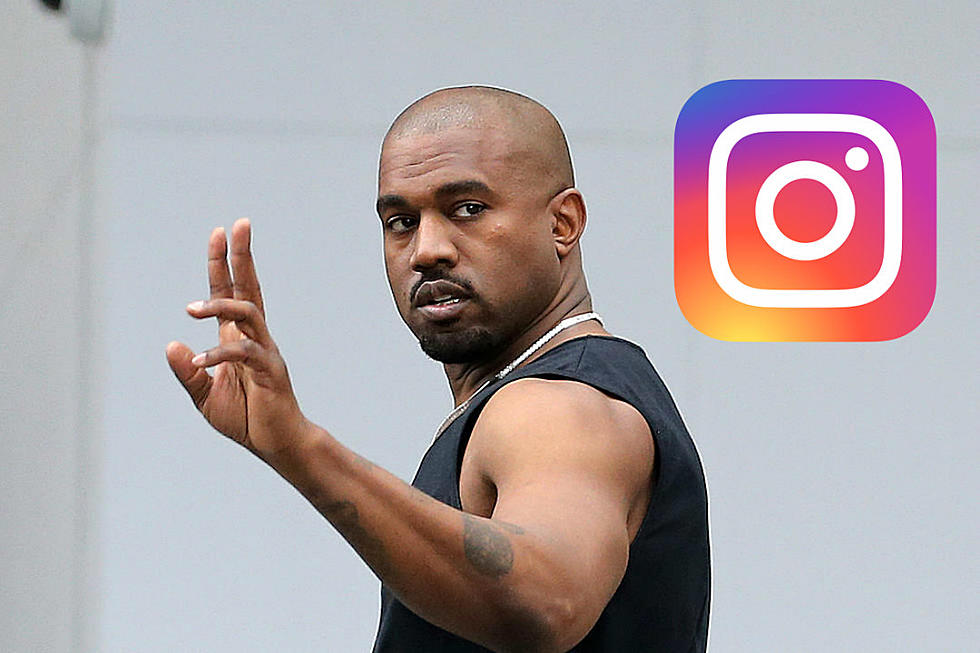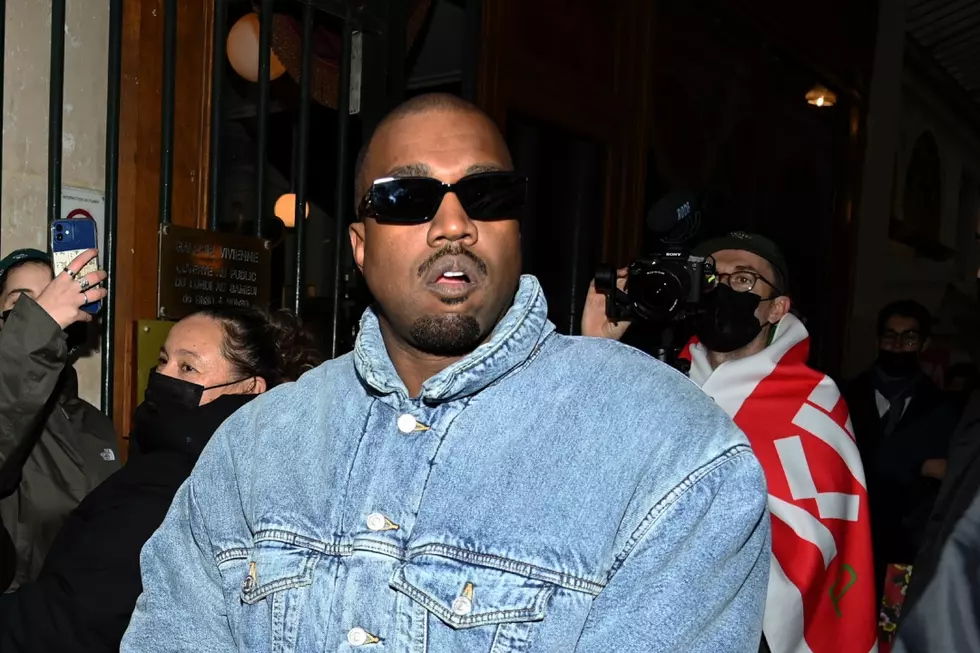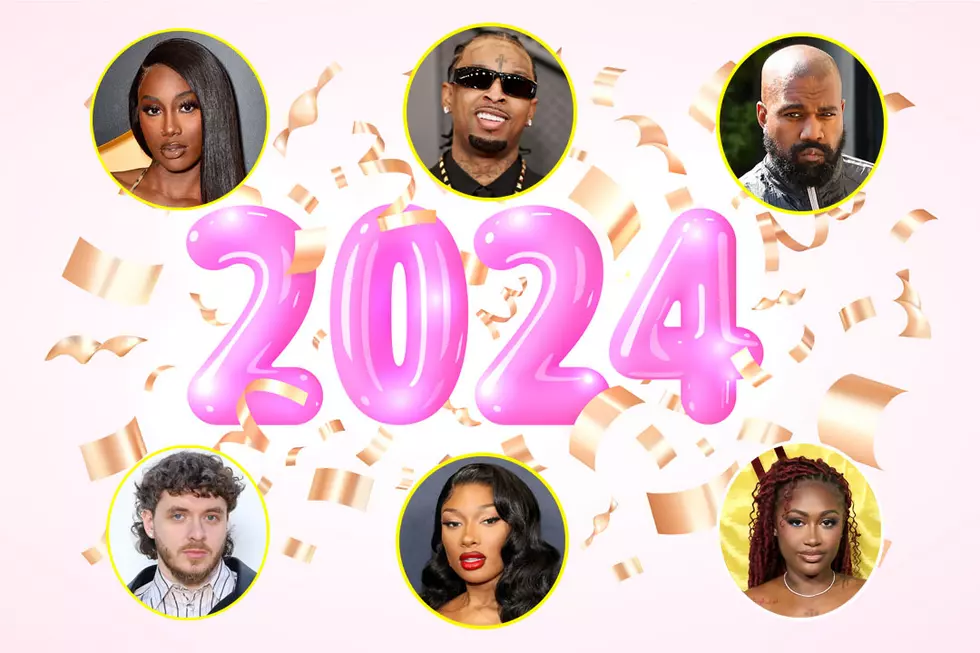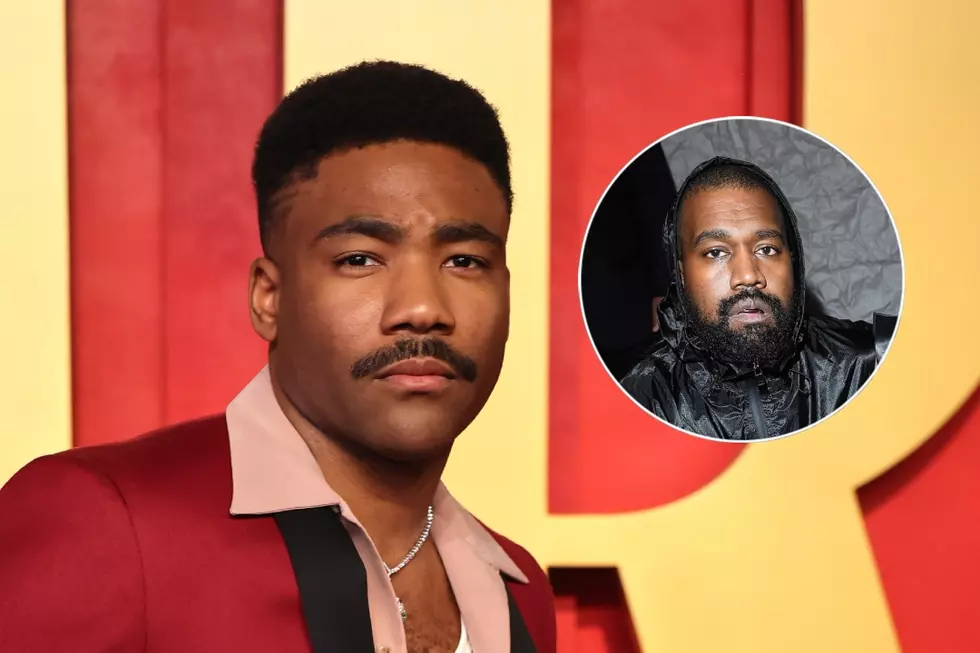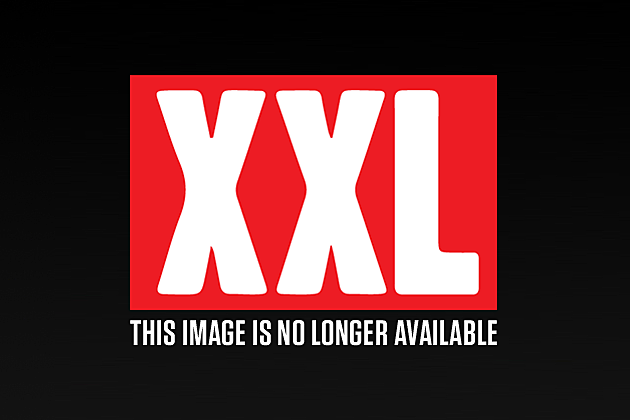
Time To Build: The Making Of Jay Z’s ‘Blueprint’
*THIS TEXT ORIGINALLY APPEARS IN XXL MAGAZINE'S 2009 OCTOBER ISSUE*
It’s the album that both changed the sound of hip-hop and helped spark one of the greatest rap battles of all time. In honor of the 10th anniversary of Jay-Z’s classic, it’s the blueprint for The Blueprint.— Compiled by MATT BARONE, CARL CHERY, JACK ERWIN, KAMARIA GBORO, JOHN
KENNEDY, ROB MARKMAN, VANESSA SATTEN AND BONSU THOMPSON
THE BUILDERS’ SPOT
JAY-Z
Brooklyn rapper a.k.a. Jigga, Hova, The God MC, former president of Def Jam, founder of Roc Nation
KYAMBO “HIP HOP” JOSHUA
A&R for Roc-A-Fella, partner, with Gee Roberson, of management company Hip Hop Since 1978
LENNY “S” SANTIAGO
Former Director of A&R Roc-A-Fella
GEE ROBERSON
Vice President of A&R at Atlantic Records, partner, with Kyambo “Hip Hop” Joshua, of management company Hip Hop Since 1978, A&R for
Roc-A-Fella (for The Blueprint)
EMINEM
Detroit rapper, producer
BINK
Virginia producer
JUST BLAZE
New Jersey producer
TONE
One half of the production duo the Trackmasters
TIMBALAND
Virginia producer
GIMEL “YOUNG GURU” KEATON
Former Roc-A-Fella engineer,
SUPA ENGINEER DURO
Former Roc-A-Fella mixing engineer
Q-TIP
Queens rapper, producer, member of rap group A Tribe Called Quest
GO TO THE NEXT PAGE TO READ THE MAKING OF "THE RULER'S BACK"
Related: Just Blaze And Young Guru Talk EDM, Creating Jay-Z’s Blueprint And More
Jay Z’s The Blueprint 3: By The Numbers
Jay Z, Kanye West And Questlove Are All Involved In Chris Rock’s New Movie
1) “THE RULER’S BACK”
Produced by BINK
BINK: I actually did “The Ruler’s Back” at Daddy’s House, in Puff’s studio. I was working on stuff for Loon or Black Rob. They didn’t take
it. The crazy thing is that, the day I went to mix that record, I loaded up the disc with the sample on it, and it was corrupted. So I had to go back to Daddy’s House that day and look through boxes of records to find that actual record, and it killed me. Luckily, my father was in town to see me, and he went to Daddy’s House with me to dig through all of those records.
LENNY S: [Bink] was somebody who always had hot joints. But it was like extended fam. We didn’t look at him like no outside, random
producer. He was actually a little closer than that. He definitely had an open-door policy.
JAY-Z: I don’t think [Slick Rick] had enough material. It was unfair that he didn’t get a chance to really be home in the studio and really
do that again. So you gotta understand why he’s not there. Great Adventures of Slick Rick [is] one of the greatest albums ever made.
The Storyteller was brilliant on that. I like to pay homage. I love the culture. I really love the culture. Even to a fault. Sometimes I’m criticized for it. That’s one of the big things. You gotta pay respect to the culture.
GO TO THE NEXT PAGE TO READ THE MAKING OF "TAKEOVER"
2) “TAKEOVER”
Produced by KANYE WEST
YOUNG GURU: There’s a lot of times when people take shots at Jay, and Jay, because of the way that he is, doesn’t really answer people back.
All the time, I wish that he’d answer them back, but a lot of people, he’s like, “They’re not really worth it.” The Mobb Deep and the Nas thing had been going on for a minute… He came out and did one of the verses at Summer Jam, and then he went back and finished the record. He finished the Summer Jam joint with, “Ask Nas, he don’t want it with Hov,” and everybody went crazy. That was sort of baiting him, but the finishing of that record was just like, “Oh, this is retarded.” That’s
actually the first mix that I ever did for Jay.
LENNY S: Everybody in there was obviously super biased. Biggest Jay fans and supporters in the world. We were 100 percent gung ho, gassing
Jay to do it. I remember Kanye semiwondering, “Damn, am I gonna kill myself from Nas or anybody else ever taking my tracks?” [Laughs] But
at the end of the day, I don’t think he really cared. “It’s Jay’s words. I just happened to do the track. It’s not my fault.” But I definitely remember it being a question mark. Ask Ron Browz, to this day, feels the same about “Ether.” When I see him, he still mentions that.
YOUNG GURU: Jay, for me, is the consummate super-cool guy. I’ve never really seen this guy sweat. That’s a running joke that we have: He’s
an alien, because I’ve never seen him sweat. So it’s not like he [was] extra-mad in the studio, like, “I’m going to kill these guys.” It was just, “Let me think of the sick lines I can say.” I was just amazed at Kanye’s flipping of The Doors’ sample, so the whole time I’m in there, I’m just like, “This beat is retarded.” But it wasn’t this super-angry vibe. I’ve never seen Jay super angry, or he doesn’t show it. It’s always the poker face. I don’t want to give the impression it was this
super-angry record. Like I was saying, it was done in the middle of so much stuff… Say we just completed a song and go play PlayStation.
Twenty minutes later, he’s come up with another three verses.
JAY-Z: I only could take so much. I take one or two, and I’ma take one more from you, lil’ man, and I’ma… It was Summer Jam, and it just all
made sense. The last Nas verse I wrote, after he made one of those records that came before “Ether.”… It was another record [“Stillmatic”] that he had made. I was like, “Okay, I’m goin’ in on the last verse.” I did the last verse last. I didn’t have the last verse. “Takeover” was two verses, and then I added that last one.
[Editor’s note: “Takeover” actually has four verses total.] He called me a rap version of Sisqo: “H to the Izzo, you rap version of Sisqo.”
GO TO THE NEXT PAGE TO READ THE MAKING OF "IZZO (H.O.V.A.)"
3) “IZZO (H.O.V.A.)”
Produced by KANYE WEST
JAY-Z: You can’t deny Michael [Jackson; “Izzo” samples the Jackson 5’s “I Want You Back”]. It’s just too easy right there. I remember having
the hook, [and] it was too repetitive. Telling Tone, “Man, this record could be something, but the hook—‘H to the Izzo’—sounds like the verses. It just keeps going. It needs something to break it up.” Tone was like, “Put the girl under it.” The best and the worst mistake we ever made—shit. And I was like, “Yo, you a genius. That’s why you in here.”… I got sued messing with Tone on “Izzo,” because he had a girl with him who we put under the hook. She said she created that hook.
LENNY S: That was one of the most stressful records of [Jay’s] life. Of his career… We didn’t give “feature” credit to artists who aren’t
known celebrities. Like, you “feature” Mary J. Blige. But if I get some random girl from my block, it’s “additional vocals.”
YOUNG GURU: I was mad at “Izzo.” When I first heard “Izzo,” I was like, “Oh, Michael Jackson sample. This is kinda corny.” But that was
my time when I really understood. Jay broke it down to me. This had become the key to his success, and he was just like, “Guru, I could rap forever and please you.”… It also speaks to my relationship with Jay. Jay understands exactly my viewpoint and who I am and what I represent. I’m the underground hip-hop guy. I hate to even use that word, but I don’t really like too much commercial hip-hop that’s formulaic, because it just feels stale. So there’s times when Jay
makes certain kinds of records, like a “Bonnie and Clyde” or an “Izzo,” but it’s [like] that verse [on “The Bounce”] where he says
these are the songs that “keep the registers ringing.”
GEE: [Cam’ron] was working on the track at the time. Our system was really on some new-age Motown. We treated it no differently than when
Berry Gordy used to have his producers cook up the beat, and then he gives it to his writers, and the best song wins in that case. We never
have a situation where we earmarked a track for that one artist. The beat CD was the beat CD. It wasn’t just a Jay CD or a Cam CD or a
[Beanie Sigel] CD.
JAY-Z: That record was maybe the last one. I was touching it, then I’d leave it alone. That record was, like, a process. I remember… I don’t
smoke that much… Well, my man who sold weed and shit came, and he said, “Man, you need—man, just smoke some weed.” I smoked some weed,
and that’s how I finished “Izzo.”
GO TO THE NEXT PAGE TO READ THE MAKING OF "GIRLS, GIRLS, GIRLS"
4) “GIRLS, GIRLS, GIRLS”
Produced by JUST BLAZE
Featured vocals: BIZ MARKIE, SLICK RICK AND Q-TIP
JAY-Z: I got two monsters [Kanye and Just] in [the studio at the time]. I’m doing these records like this [snaps fingers]… It started
stepping on toes and everything. “Girls, Girls, Girls” sounds like a Kanye record. Just was like, “Oh, you want a soul sample? I got that,
too.”
JUST BLAZE: I already had “Girls, Girls, Girls” made for a minute. I was toying with the idea of giving it to Ghostface… I played it for
[Jay], and he was like, “Let’s go do it right now.” I think he had already toyed with the idea of doing a record like that, where it wouldn’t be a huge smash, as far as a club record, but it was very visual.
LENNY S: At first, I think we had Biz [Markie], but then it was like, “Okay, but do we need Biz on every hook? Is that gonna be hot?”… I
think John Meneilly—Jay’s manager—actually came up with the Biz Markie idea, and then Jay came up with one of the other two on his own.
Q-TIP: [Jay] texted me and was like, “Yo, come by the studio.” I went there, and he had the track up, and he had Slick Rick on there, [and]
Biz, and [he] explained to me what the song was. He played it for me with the lyrics, and I was like, “Yeah, it’s dope.” Then I saw what
the hook was. He was like, “You can sing it or talk it or do whatever you want.” I just did it in one take, and that was it. He was eating a
hero, and I was like, “Aight, I’ll see you at the gym later.”
JUST BLAZE: When I met [Ghostface] years later, I told him. He was like, “Yo, God, I knew it when I heard it, that was supposed to be for
me.”
GO TO THE NEXT PAGE TO READ THE MAKING OF "JIGGA THAT NIGGA"
5) “JIGGA THAT NIGGA”
Produced by THE TRACKMASTERS
TONE: [Jay] actually made two attempts on the record. He vocaled it one time, and it was actually perfect. And then I was riding around
with that version, [and] he called me on the phone. He said, “Now it’s a classic.” I said, “What you talking about?” He said, “I fixed it.
It’s a classic now.” And then he sent me the new version, with the verse that the public hears now, and it was unbelievable.
JAY-Z: Tone always disappears. You see him one month, [and then] he’s gone. I wanted him to not executive produce, but… I always liked the
way he mixed records, and the way he does his drops in such a hip-hop approach to it, and I really want him on the thing… [Tone] was supposed to oversee The Blueprint. He missed the whole opportunity. I would kill myself.
DURO: [Tone] might’ve been one of the people that’d been like, “Yo, it needs to be bigger,” and that’s when I came in. I remember when I was
mixing that song, I didn’t know it was a single at that point. The sample was hot. It just needed that knock.
TONE: Jay doesn’t even know it was [originally] for N.O.R.E. [Laughs] N.O.R.E. doesn’t even know it was for N.O.R.E. That’s funny. It was
actually the same joint, but with the word “N.O.R.E.” Instead of “Jigga,” it was “N.O.R.E.”
JAY-Z: What “Jigga That Nigga” did was, in the soul samples and that feeling, it kept you awake. It was one of those joints that was out of
place, but out of place in a good way. ’Cause it’s, like, in the middle of the album, pretty much, and it breaks the album up to go right back into that motion.
GO TO THE NEXT PAGE TO READ THE MAKING OF "U DON'T KNOW"
6) “U DON’T KNOW”
Produced by JUST BLAZE
JAY-Z: During that time, I had two rooms in Baseline. It was a big room that I was in, that I’d record in. Then it was a small room that
Just would be in doing beats. What happened was, Just would peep his head in and hear what me and Kanye was doing and would just go back mad. Like, go back and just go [pounds fist on table], and just come in and be like, “Yo.” And it was like this every day. It was like a heavyweight slugfest. For three days they was just knocking each other out. And I remember him playing that joint, and I was like, “Oh my God.”
JUST BLAZE: I might’ve attacked that [beat] two or three times before I felt that I really nailed it. I was gonna flip that sample for Busta
[Rhymes], then I ended up not doing it… That’s actually the record that got me comfortable in my relationship with Jay. That and “Song Cry,” because the demo versions of those songs didn’t sound like the final product.
LENNY S: [Just] would start the sample out, and then do just a little piece of it, then bring us in the room and get that initial naysay
right away. That one was all the way, right away. One hundred percent retarded. Hardest record on the album.
JUST BLAZE: I was never 100 percent happy with the way the beat went down, because the way the album happened so fast. I always planned on
doing a lot more with that beat. That’s why I revisited it on [The Blueprint2: The Gift & the Curse].
GO TO THE NEXT PAGE TO READ THE MAKING OF "HOLA' HOVITO"
7) “HOLA’ HOVITO”
Produced by TIMBALAND
JAY-Z: [Juan Perez, owner of 40/40 Club,] is Dominican. You know, that’s like my brother. So it’s always a Latin influence, and you always have a bunch of people around. He actually helped me with that record. Like, “bujando.” ’Cause I was like, “What’s that shit they be saying when, you know, when you up there? What’s that?” So he was there. Actually, we were gonna have him say, “Hola' Hovito,” but he was like, “Man, I can’t do that shit.” [Laughs] Bujando—I don’t know if it means cops, but it’s the code for cops.
TIMBALAND: Jay-Z is like my brother. We have a long history together. Working with him is like working with family. I cherish every moment
of the recording process, and each song means something to me. We just try to have fun and make good music. We go in and creatively vibe. We were both in a good place when we recorded [“Hola’ Hovito”], so we just had a good time. Each song we create has a special meaning to us.
LENNY S: When we worked with Tim [at that time], we would go to Manhattan Center Studios, on 34th Street, and that’s where he always
worked. He would play us the heat, and Jay would record the song right there… That one was a one-off… If Tim plays four or five joints, Jay does two or three. He always nailed it.
GO TO THE NEXT PAGE TO READ THE MAKING OF "HEART OF THE CITY"
8) “HEART OF THE CITY (AIN’T NO LOVE)”
Produced by KANYE WEST
JAY-Z: I just made “Hard Knock Life,” then “Big Pimpin’.” Any time you have that type of success, it’s gon’ be some type of backdrop. So I was recourse—going through that whole thing. I remember [the Notorious B.I.G.] telling me, going through that whole thing—that’s how I started. I remember having this conversation with him, and he felt the same way. At the same point, I remember him making “Mo Money, Mo Problems.” I was going through that moment.
YOUNG GURU: At that time, if you remember, the Jay and R. Kelly song [“Fiesta (Remix)”] was popping. We’re sitting in the studio, that
[“Heart of the City”] beat is on for about a half hour, 45 minutes, and just by coincidence the “Fiesta” video starts. Jay taps me, like, “I’m ready”… He walks out the door of the A room, walks down the hallway into another door, gets in the booth [and] spits all three verses. Walks out that hallway, walks back in the door, and the
“Fiesta” video is still on. That’s how fast he recorded that song.
DURO: Kanye wasn’t even really a part of his mixes [back then]. As he grew as a producer, he became more involved in all aspects of the
mixes. But back then, I was definitely in my zone, especially with the Jay records. I probably mixed at least 50 Jay songs. So he’d just send
them to me, and I did my thing. Then I sent them back, then I get a little comment here or there.
LENNY S: The dope shit about Kanye, man, Kanye laid out every part of a song, painted the entire picture. I’m talking about every album,
literally, from “Heart of the City” to “Encore.” With “Heart of the City,” he was there, music loud, whispering in Jay’s ear while the beat was playing. Clapping his hands. With Kanye there as excited as he was, it was easy for Jay to pick that record off of the beat CD.
HIP HOP: I know “Ain’t No Love” was for DMX, because it had the choir-type chorus. But the way the beat broke down, X could’ve
definitely rode that part. Jay wanted that to be the first single, too. But it was too far. Everybody loved “Izzo” at that point. But I know he was playing with the idea of putting out “Ain’t No Love” as the first single, and then go into “Izzo.”
GO TO THE NEXT PAGE TO READ THE MAKING OF "NEVER CHANGE"
9) “NEVER CHANGE”
Produced by KANYE WEST
YOUNG GURU: Jay always does his sequencing. The thing that makes him who he is, he has a certain amount of people, maybe four or five, that
he really trusts, that’s in his inner circle, and he takes all of our opinions and then makes a decision based on all of our opinions. So Jay doesn’t really have an A&R. It’s just him. But he takes into account everyone’s opinion. The lessons that he’s giving in “Never Change” is just crazy. It’s about not changing who you are. Obviously, Jay evolved, but it’s about not changing the core of who you are. That’s that line from [“Public Service Announcement:”] “You could try to change, but that’s just the top layer/You was who you was when you got here.”
JAY-Z: [With the line, “You say you lost $100,000 worth of crack? And you got it all back,”] I remember doing that, I remember saying that,
and [former Def Jam VP of A&R Tyran “Ty Ty” Smith] going crazy, like, “Yo, you can’t do that. Yo, you buggin’.” He really didn’t want me to put that on there at all. I remember it was a big thing, like, “Yo, I said it.” I ain’t doing shit now, but it was a lot of information.
GO TO THE NEXT PAGE TO READ THE MAKING OF "SONG CRY"
10) “SONG CRY”
Produced by JUST BLAZE
JUST BLAZE: You can’t tell from listening, because it sounds so fluid, but that record is probably the most I’ve ever chopped up a [sample]
ever. The pianos is playing, and all the keys that’s in there, every note that’s hit is a chop. You can’t just take that record, line up some drums, loop it up and go, because the playing and the sample is all over the place. I had to chop every note up, from the piano to the chimes. Even every note he sang. I think there is, like, 70 sample chops in that record.
YOUNG GURU: It was late at night. Just started chopping up the sample, and he had the sample just looping. I was like, “It don’t make sense
the way you got it. Something’s wrong in there.” He’s like, “Nah, Guru. Trust me, it’s gonna be right. Just watch what I do with it.” And he finished the beat, and I was like, “I get it now. This shit is incredible.” That was, like, phase one of that beat. And then he played it for Jay, and Jay loved it and rapped on it, and we were so hyped that Jay liked it. Just took it that night, and it was in one form, just the beat, one part of the beat. It was one part of the sample, and Jay rapped on
that. By the time Jay came back the next day, Just had fleshed the song out into the way that you hear it on the album, and Jay was just amazed, because it sounded so different to what he laid. He was like, “This kid is incredible.”
JAY-Z: “Song Cry” is the perfect example of taking something real and make a fantasy out of it. I took three different relationships and
made it one girl. It was three different things that happened, with three different girls—major relationships that I had. And I made it to one girl.
LENNY S: Jay challenged himself on how to end this song. He didn’t want it to be typical. The guy who writes the song always gets the
girl, the car, the money. Jay felt that wasn’t real in life. You definitely take some L’s in all aspects of life. So that third verse, he took a minute on it. He actually rewrote it. He started something, stopped, went back and let the girl cheat on him, and he was actually hurt. He definitely took a minute to just be vulnerable. We were all sitting there, and I could see it in his eyes.
GO TO THE NEXT PAGE TO READ THE MAKING OF "ALL I NEED"
11) “ALL I NEED”
Produced by BINK
BINK: “All I Need” was actually a record I had cut for a group I had signed to Elektra called NAAM Brigade, from Philly. Hip Hop was trying
to buy that record from me the whole time. Unfortunately, my lead guy from the group, Q-Don, was murdered while we were mixing the album, so that’s how Hip Hop ended up getting the “All I Need” beat for Jay.
LENNY S: I remember personally arguing with Bink because he wanted an equal amount with Just and Kanye, as far as beats placed on the album.
[Laughs] I told him, “Bink, man, you got, like, two or three joints on this. What is wrong with you?” There’s a ton of producers on, say, a [Young] Jeezy album, so the lottery-ticket percentile for somebody to even get one is almost impossible, and here he had three records. It was all in good competition, though.
GO TO THE NEXT PAGE TO READ THE MAKING OF "RENEGADE"
12) “RENEGADE”
Produced by EMINEM
Featured vocals: EMINEM
LENNY S: We actually had a record for Em to jump on. I can’t remember what it is. But Em was like, “Hey, I already got a joint that’s hot,
and I got a verse on it. I’ll do the hook and send it to you to see what you think.” Then he sent it. That’s why his flow is so retarded on it—it’s his beat, his joint. It was his baby… That was one of the last joints finished for the album, and it was cool, because it didn’t have a sample. So we were straight.
YOUNG GURU: [Jay and Eminem] discussed what they were gonna talk about, and Em sent the verses, and Jay just recorded to what Em had.
But he’d actually written his verse before he’d heard what Em had recorded. Eminem, that’s his whole thing, going against the whole pop culture. And Jay’s whole thing of being a renegade was… For the whole time that he’s been in rap, he’s been trying to say, Even though I’m in rap, and you view rap as this, we’re intelligent, thinking people. Jay’s expression is, I’m gonna be a renegade to pop culture, and culture in general, from the underclass perspective, the inner-city,
Black perspective. You put us in this position of not respecting us, and we’re supposed to be forgotten about, the sons of slaves. We’re just, like, whatever to y’all, so we’re renegades, because we don’t believe in that. So we’re gonna do what we wanna do, dress how we wanna dress and start our own companies.
JAY-Z: When I got the song, I pretty much dialed into the concept of the song, more than us rapping. I really dialed into the emotion of
the hook and the song, more so than listening to what he was saying. So I had that. Honestly, after it was done, everybody was like, “Yo,
White boy’s getting it in.”
EMINEM: We just made that track like any other, and the “Renegade” chorus just felt like it fit the track perfectly. I [did a demo of] the song with Royce [Da 5’9”]. But Jay came in with a short window to get something done for his album. So I asked Royce and he was cool if I gave it to Jay, and I sent it to him to knock it out. Jay just called me and asked if I would make something for us to be on for his album. It was an honor. I’m always down to work with him. He’s one of
the greatest ever. Unfortunately, we didn’t work on it together physically. It was done in two separate studios, one in Detroit and one in NY. Renegade just felt right for [Jay] to be on. It’s an open, sparse beat made for spitting, and I knew he would sound great on it. I never thought about changing my verses, really. The chorus was designed to go back and forth. The only thing Jay changed was one word, “holla about anything,” instead of what I said on the same part, “talk about anything.” He gave it his own flavor and holla was kind of his thing back when the term was new, which I thought was cool.
GO TO THE NEXT PAGE TO READ THE MAKING OF "BLUEPRINT (MOMMA LOVES ME)"
13) “BLUEPRINT (MOMMA LOVES ME)”
Produced by BINK
JAY-Z: I missed one of my aunts. I remember we had, like, one of those Christmas dinners that we have. Our family always eats together on
holidays. And she was like, “That was me.” I said the wrong aunt. [Laughs] So that’s my Aunt Niecy. [Laughs] Aunt Niecy was tight. It was so bare-bones. I was like, “Let’s hit the kitchen table—shit.” The kitchen table, that’s how I used to rap, when I used to write. When I was writing earlier, I wrote to the same beat, because I could play it and rap. I could do the two things, but I couldn’t do many beats. I only had one.
BINK: That was me beating on a piano stool, on that one part where he says, “Kitchen table, [that’s] where where I honed my skills.” I was
actually beating on a piano stool with the mic, to make it sound like it was a lunchroom table.
YOUNG GURU: Jay’s like an old-school hustler. He reminds me of my uncles or the old-school hustler guys on the block, where they didn’t
really want you to know their name. They’re not the type to be carrying the conversation in the room. They’re real quiet, to-themselves type of people. I always say to Jay, “The only way people really know you is through these records, and you’re not that introspective.” He’ll save it for the last song, like “You Must Love
Me,” “Momma Loves Me,” “Regrets.” The last song on most of his albums is this super-introspective, let-me-let-you-into-how-I-feel type of song.
JAY-Z: [In the end,] the listening sessions was getting bigger and bigger between us. Not the listening sessions for the industry, but playing it in the studio. It was getting bigger and bigger. People was coming back with their friends and shit, like, “Yo, you gotta hear this shit.” And it was so much energy in the studio that I was like, “Oh, this is special. This gon’ be really serious.”
More From XXL
